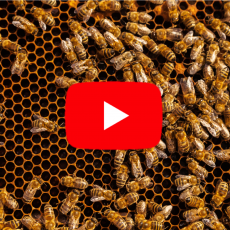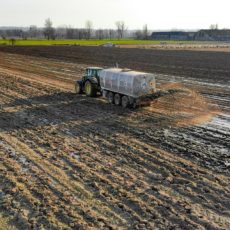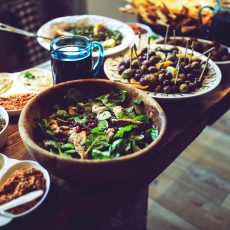Last week we discussed some of the problems with industrial agriculture. As the name implies, it’s all about doing things on a bigger scale, to obtain more of the thing we need: food. On the other hand, sustainable farming draws on a variety of different techniques, and its goal is to produce long-term crops while having minimal effects on the environment, and using resources more efficiently. But there’s a step even further, which is, arguably, what we should be aiming for, and that’s regenerative agriculture.
Read moreFarming
Farming: The Good and the Bad Part 1

Today is part one in a 2 part mini-series on agriculture. We’ll be exploring the old and industrial methods versus the new and regenerative methods of food production, to see which route we should be taking into the future. So come with us down to the farm and learn about these different approaches aiming for the same outcome – food production and profit.
Read morePhosphorus and Sustainability: Ingredients Needed for Life

Life as we know it literally cannot exist without phosphorus. However, indications are that phosphorus demand could outstrip supply this century if no fundamental changes are made to our current trajectory of use.
Read moreSustainable Living, Carbon Footprint, and the Vegan Diet

Today, we’re talking about sustainability and the vegan diet: Is excluding all animal products, from both land and sea, truly sustainable? The answer is a little more complex than just a simple yes or no.
Read moreThe Building Blocks of Life and Sustainability: Phosphorus

Life as we know it requires phosphorus.
Read moreComposting with William Klimpert of Common Ground Compost

We have food waste on the brain. According to the Food and Agriculture Organization of the United Nations, an estimated 1.3 billion tons of food is wasted globally each year – one third of all food produced for human consumption. So, today, we’re talking with William Klimpert from Common Ground Compost about how to turn our waste not back into want not.
Read moreFarm to Table with Morten Sohlberg of Blenheim

Today we’re talking with Morten Sohlberg, co-owner with Min Ye of Blenheim restaurant in New York City, about farm to table dining and sustainability. Located in the West Village, Blenheim is named for their 150 acre Blenheim Hill farm in the Catskills. The farm raises hens, pigs (3 different breeds), and lamb; grows and also forages for their greens; makes maple syrup; and — our favorite –keeps their own bees!
Read moreSustainably Sweet

What do we humans consume globally to the tune of 7.2 million metric tons and almost 90 billion dollars every year? What delicious food’s history dates all the way back to 450 BC and the Aztec Empire? What food had so many new types launched in 2008 that an average of one new product was brought to market every hour?
Read moreFighting Food Waste

Today, we’re talking about food waste. According to the Food and Agriculture Organization of the United Nations, an estimated 1.3 billion tons of food is wasted globally each year – one third of all food produced for human consumption.
Read moreFarm to Table to…Trash?

According to the Food and Agriculture Organization of the United Nations, an estimated 1.3 billion tons of food is wasted globally each year – one third of all food produced for human consumption.
Read more